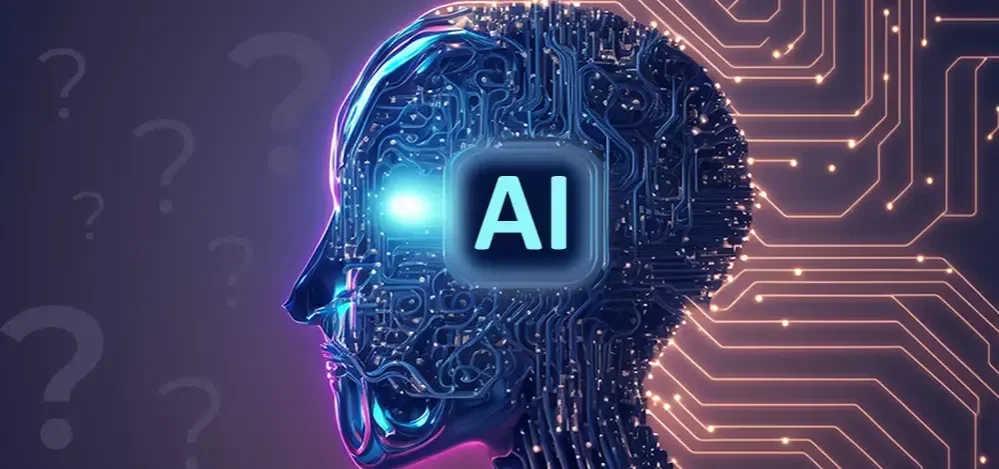Introduction
Artificial intelligence (AI) technologies have rapidly advanced in recent years and have begun to be used in many fields. However, the widespread adoption of these technologies has also raised ethical concerns. This article will address the ethical issues surrounding artificial intelligence, discuss ethical principles, and propose solutions to these problems. As AI continues to integrate into our daily lives, understanding and addressing these ethical issues becomes increasingly critical for ensuring that AI benefits society as a whole.
Ethical Issues in AI
As AI technology becomes more prevalent, several ethical issues have emerged that need careful consideration. These issues pose significant challenges that must be addressed to ensure the responsible development and deployment of AI systems:
- Privacy and Security: Artificial intelligence systems often operate on large amounts of data, raising concerns about the privacy and security of this data. Particularly, handling and storing personal data must be done with caution. AI’s ability to analyze vast datasets can lead to the extraction of sensitive information, sometimes without the explicit consent of the individuals involved. This raises significant privacy concerns, as breaches or misuse of data can have far-reaching consequences for individuals and society at large.
- Bias and Discrimination: AI algorithms can learn and propagate biases and discrimination present in datasets. This can lead to discrimination based on factors such as gender, race, or ethnic origin. Bias in AI systems can occur during the data collection and training phases, where historical prejudices are inadvertently encoded into the algorithms. These biased outcomes can perpetuate existing inequalities and even create new forms of discrimination, making it crucial to develop methods for identifying and mitigating bias in AI.
- Accountability and Transparency: The decisions made by artificial intelligence systems are often complex and opaque, making it difficult for responsible parties to understand and explain these decisions. This lack of transparency can undermine trust in AI systems, especially in high-stakes scenarios such as healthcare, finance, and criminal justice. Ensuring that AI systems are transparent and that their decision-making processes are understandable to humans is essential for maintaining accountability and preventing misuse.

Ethical Principles in AI
To address the ethical challenges posed by AI, it is essential to establish guiding principles that can help shape the development and deployment of AI systems. These principles provide a framework for ensuring that AI technologies are used in ways that are beneficial and fair:
- Transparency: Artificial intelligence systems should be transparent about how they operate and how their algorithms work. Users and affected parties should be able to understand the decisions made by these systems. Transparency is crucial for building trust in AI technologies, as it allows users to see how decisions are made and to challenge or appeal those decisions if necessary. It also helps in diagnosing errors and improving the systems over time.
- Fairness and Equality: AI systems should be fair and equitable. They should not contain any discrimination or bias. Fairness involves ensuring that AI systems do not disproportionately disadvantage any particular group and that they operate under the principles of equality and justice. This principle requires continuous monitoring and testing of AI systems to identify and correct any biased behaviors.
- Privacy and Security: The privacy and security of personal data must be protected in artificial intelligence applications. Data security should be ensured at the highest standards. This principle emphasizes the need to safeguard individual privacy by implementing robust data protection measures, including encryption, anonymization, and access controls. Ensuring data security also involves protecting AI systems from cyber-attacks and unauthorized access that could compromise the integrity of the data and the decisions based on it.
Solutions for AI Ethics
Addressing the ethical challenges of AI requires a multi-faceted approach that includes education, regulation, and collaboration. The following solutions are proposed to help ensure that AI is developed and used ethically:
- Education and Awareness: AI developers should be trained to understand and address ethical issues. Additionally, users of artificial intelligence should be educated about ethical considerations. Education is a critical tool for fostering an understanding of the ethical implications of AI among both developers and users. By raising awareness of these issues, stakeholders can make more informed decisions and contribute to the responsible use of AI technologies.
- Regulation and Oversight: International standards and rules should be established to regulate and oversee artificial intelligence technologies. This would ensure compliance with ethical standards and legal requirements. Effective regulation involves creating guidelines that define acceptable practices for AI development and deployment, as well as mechanisms for monitoring and enforcing these guidelines. Oversight bodies should be empowered to audit AI systems and hold developers accountable for any ethical breaches.
- Interdisciplinary Collaboration: Collaboration among experts from different disciplines is crucial for addressing issues of AI ethics. Lawyers, engineers, psychologists, sociologists, and experts from other fields can contribute to developing comprehensive solutions. Interdisciplinary collaboration allows for a more holistic understanding of the ethical challenges posed by AI, as it brings together diverse perspectives and expertise. By working together, experts can create more robust and effective strategies for managing the ethical implications of AI.
Conclusion
Artificial intelligence ethics has become increasingly important with the widespread adoption of AI technologies. Ethical development and use of these technologies are critical for solving problems affecting various sectors of society. Therefore, continuous efforts and vigilance are necessary in the field of artificial intelligence ethics. As AI continues to evolve, it is essential to keep ethical considerations at the forefront of discussions and decision-making processes. By doing so, we can ensure that AI technologies are used to enhance human well-being and contribute positively to society, while minimizing potential harms.




